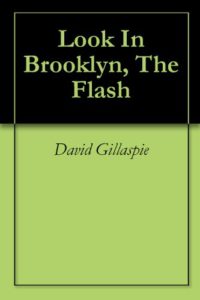Writing roots are reading roots.
Everybody knows that from their first grade if they had a teacher as good as Mrs. Baker.
I recall her saying, ‘Our writing is a reflection of our reading.’
I believed it then as I believe it now.
(Folding a corner to mark my place in Patrick DeWitt’s novel The Sisters Brothers)
The same writer just won an award for this latest.
Somewhere between the first existing written story:
The earliest surviving written literature is from ancient Mesopotamia. The Epic of Gilgamesh is often cited as the first great composition, although some shorter compositions have survived that are even earlier (notably the “Kesh Temple Hymn” and “The Instructions of Shuruppak”).
and The Sisters Brothers, I’ve turned a few pages as an English Major who switched to a History Major.
Reading was the rule of the day. Luckily I liked to read, I’ve always liked to read.
My first big reading adventure came with Superman comic books, Superman and DC buddies.
My first literary-inspired question: Was my Dad secretly building a rocket ship to send me to another planet in case earth exploded like Krypton?
Call it a sub-plot, a side-story, background, back-story, whatever. He did build a small boat in the garage so he was a builder.
Water Writing Roots Or They Rot
The beauty of writing a story is in the build. Luckily our Greek pals left us a structure along with government ideas.
The Three Part Structure On BoomerPDX:
Part One:
Show how things are in the beginning.
You’ve seen movies that take a macro to micro view, from flying over a city to opening an apartment door?
Of course you have. Seinfeld always had the street to door to apartment sequence.
But for the sake of story structure, let’s get to the point without the macro and save it for back-story.
MICRO:
It’s a lovely day, the skies a darkening blue to fading light that’s shining down on a perfectly luxurious cul-de-sac, or at least what passes for luxury for some people.
Two men stand in a driveway talking, pacing to and fro.
Man 1: Save the shit talk.
Man 2: Why is it shit talk, because you disagree and everything is shit talk if it doesn’t fit into your perfectly luxurious little cul-de-sac context of life? Is that it?
Man 1: No, because you’ve said the same shit five times and I’ve already responded three times, and asked you to can the shit talk twice.
Man 2: Check your math, genius.
Man 1: If your goal is becoming stupid and fat you’ll need another hundred pounds to keep up with the stupid part.
Part 2
There’s conflict but we don’t know the characters.
This is where the back-story comes in: Who are they and why would anyone care?
Is writing really work? It is if the reading is easy, if you feel what they feel, see what they see, and how it all leads to deeper meaning which hopefully makes a better story.
My favorite is the comeback story for a sports guy, a coach, athlete, a team.
Their backstories naturally propel them to the inevitable conclusion.
Part 3
Late in the game Jimmy goes back in dragging a leg, one arm in a sling, and throws the long ball touchdown before getting crushed.
The crowd goes wild, the team picks him up and carries him off the field.
Jimmy’s Dad yells from the grandstands where all the voices fade to his alone as he closes his eyes and drifts into a dream of Jimmy’s early sports.
It’s a kid soccer game, sixth graders. Jimmy dribbles up the field, passes to the left and cuts in behind his teammate who drops it back to him and sprints for center of the field.
Jimmy dances with the ball before lofting a kick to his teammate streaking for the goal to head it in, but it bounces off the bar.
Jimmy drills a winner on the follow up.
All the parents in their lawn chairs jump up at the majesty of the beautiful game, arms waving, mouths open in a cheer that morphs into the comeback play of the football season that fades to the scene of two men in a suburban evening.
Man 2: I’m not gaining another hundred pounds. I’d get diabetes.
Man 1: Then smarten up. It’ll be good for you. Level the fuck out.
Writing roots are reading roots, living roots, family roots, work roots.
But the strongest writing roots grow in the comeback story. (Hey D)



